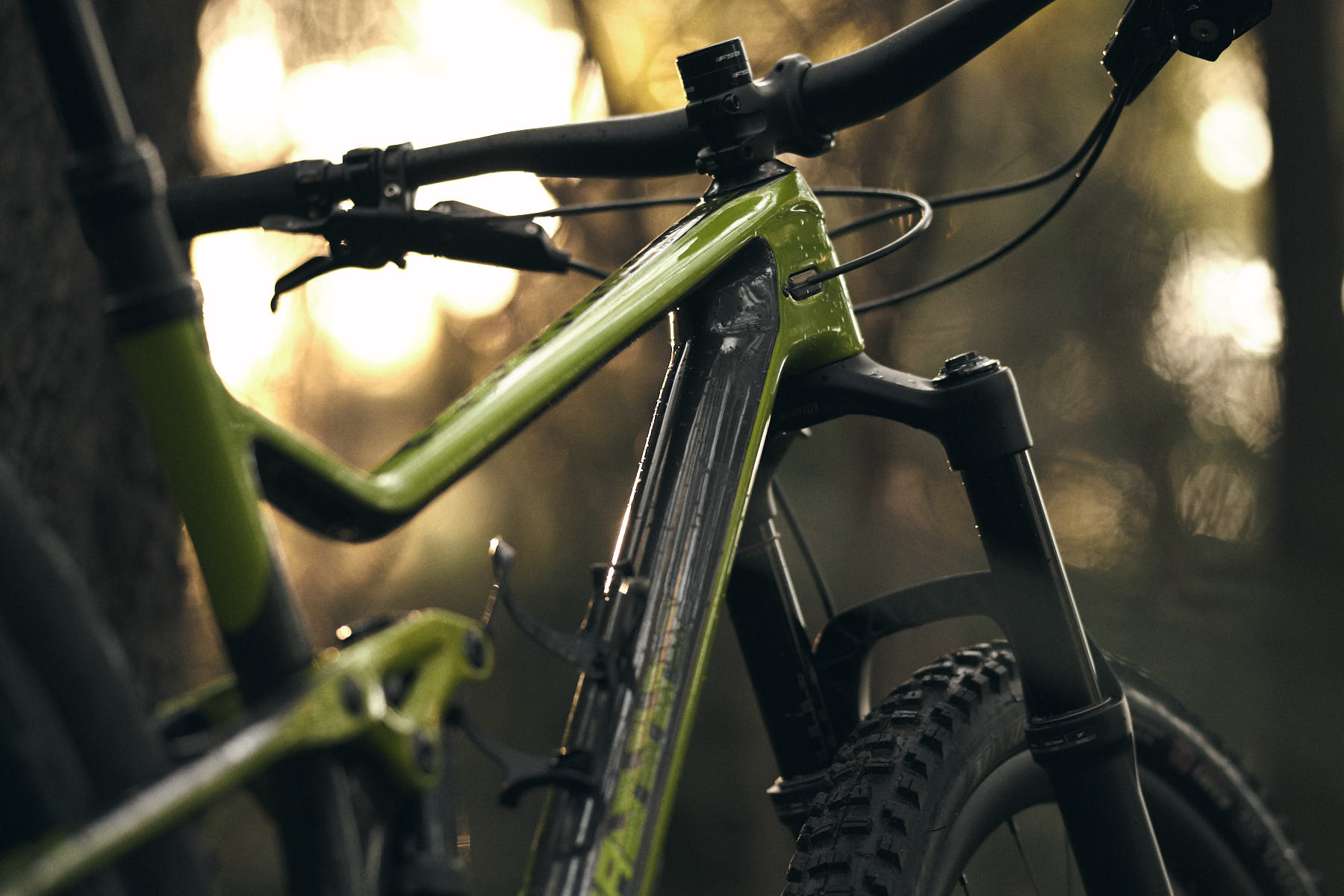
Under-rated steeds.
Merida bikes have never quite nailed the sex appeal thing. Maybe it’s a deliberate strategy, but with model names that read more like a barcode number and straight-down-the-line infographics aplenty, Merida is a brand that seems to appeal to the analytical rather than passionate customer. Maybe their recent fun video to launch the new eOne Sixty is a new direction for them? Speaking of which, check out our first impressions of that bike here.
But in fact, there is a lot to get excited about when it comes to their bikes. Not only are they making some of the best eMTBs on the planet, but they have a tonne of seriously dialled and engaging conventional mountain bikes too. The Merida One Forty we tested a while ago is still a standout for us, for example.
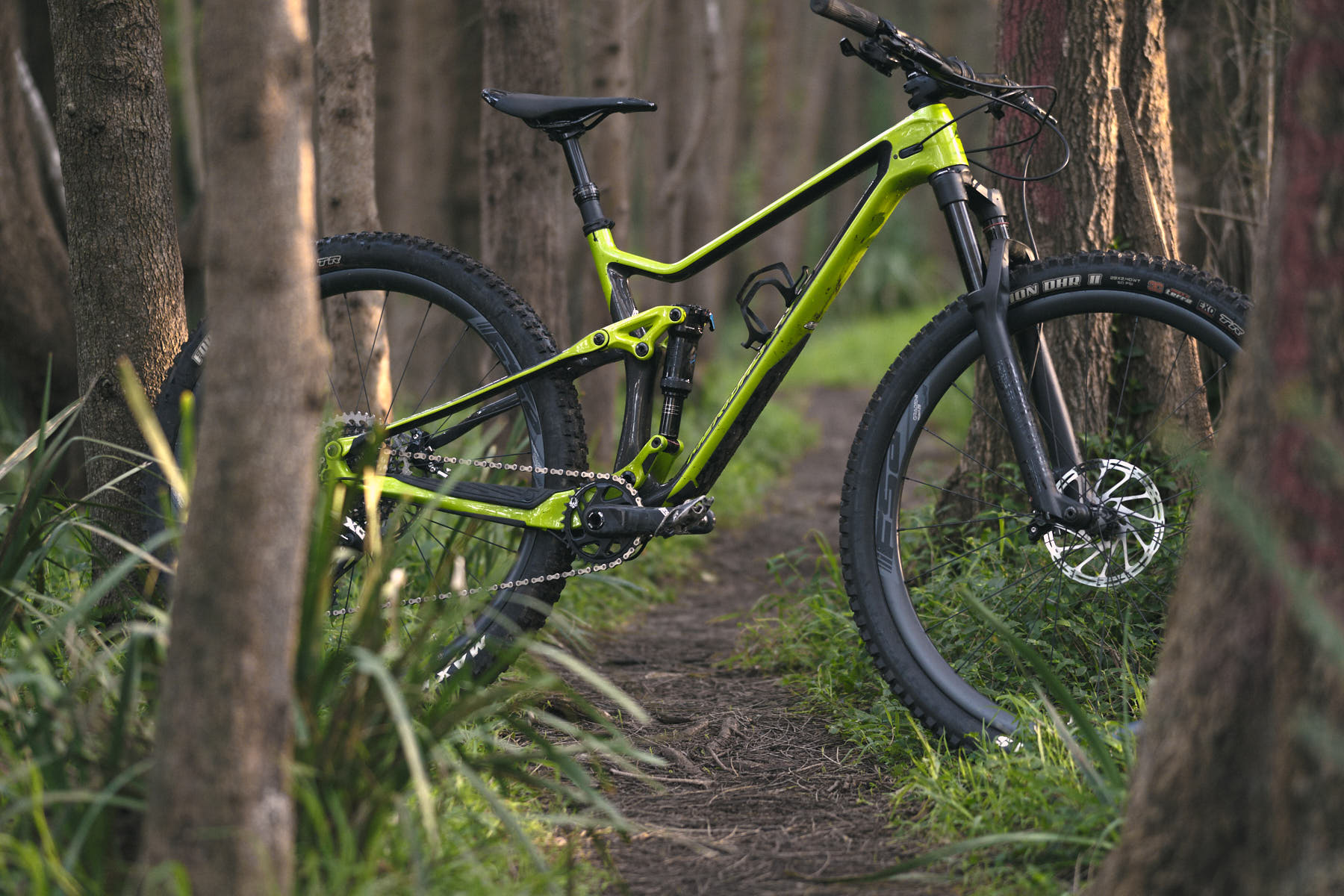
What have we got here, then?
Mid travel and 29er wheels for the win. The 120/130mm 29er segment is a big portion of the mountain bike market, and Merida have catered for a massive range of potential buyers with the new OneTwenty; they got three different alloy-framed models under the $3000 price point, while the carbon 8000 model we’re testing is the top offering in Australia at $6999.
The epitome of the modern short-travel trail bike.
Merida has straight up nailed it here. Much like the Giant Trance 29er we’ve got on long-term test, the new One Twenty has the nous to handle a huge range of potential riding situations. Efficient and light enough to enjoy smooth XC race courses, but with geometry and components that hint at its capabilities in big hills at high speeds. A lot of Merida’s market is in Europe, and you get the feeling this bike is really pitched at riders who want to ride to the top of a Very Big Mountain and then bomb back down on the unpredictable goat tracks that are some common over there.
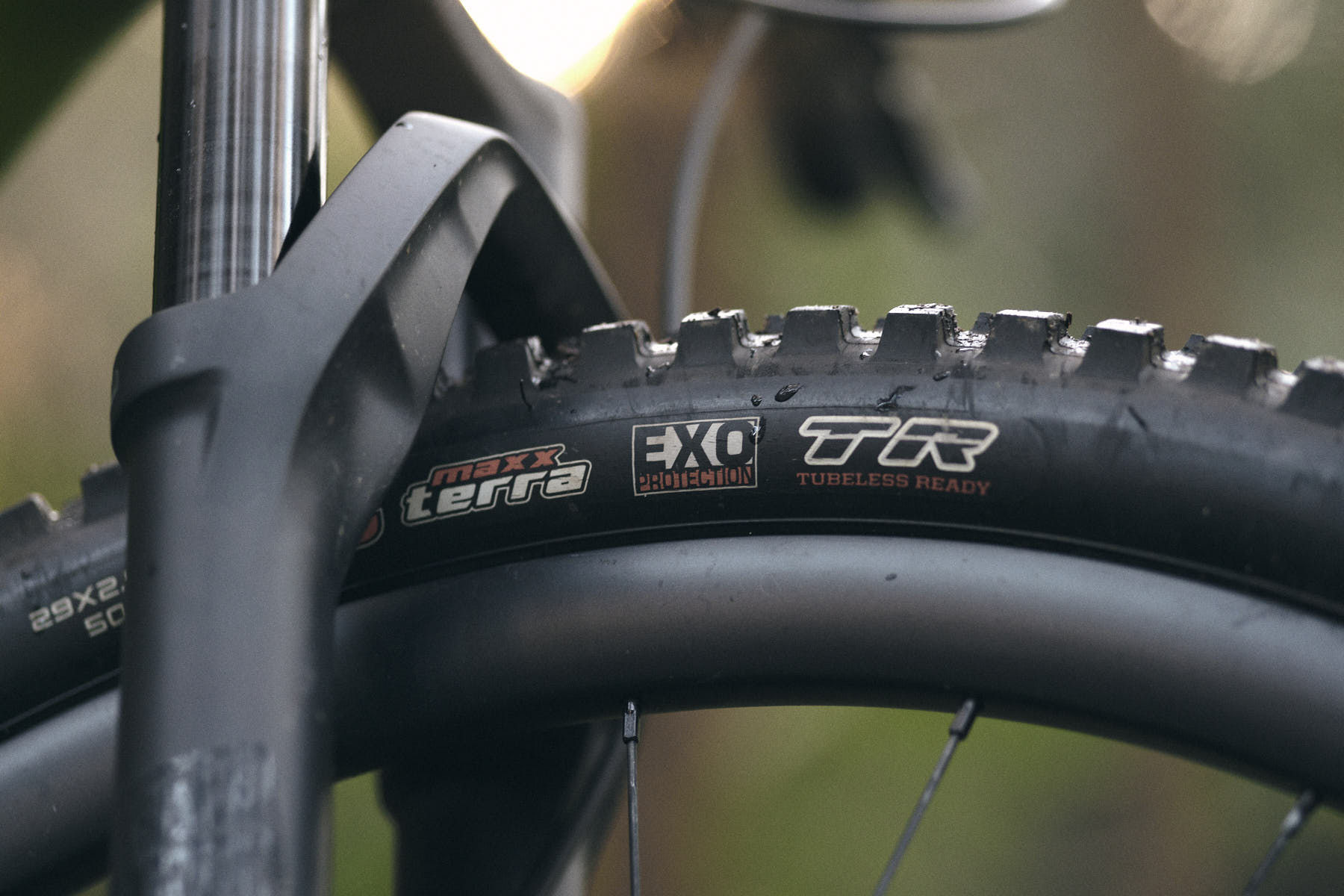
Try a new line.
There’s a feeling that we get when a bike is just right for us – an itch to try new lines on trails that we’ve ridden dozens of times before. The Cannondale Habit brought out the same feeling, as did the Norco Range 29er. The Merida gave us that urge, big time. A combination of lightweight precision, coupled with excellent tyres and a riding position that felt instantly confident and natural had us looking at pieces of familiar trail in a new way – “I wonder if I could jump from there to there and still make the next corner….?”

So what’s the recipe?
Great geometry is the main factor here. Luckily for those who can’t afford the asking price of this particular model, the geometry is identical on all models in the range. The One Twenty packs a winning combo, with a roomy front end, reasonably slack head angle and short 435mm stays. The other key attributes are excellent rubber on wide rims, and a suspension feel that is supportive and encouraging of putting the bike into some nasty places.

Firm but not harsh.
With the Merida One Forty we tested a while back, we remarked how the Float Link suspension felt bottomless. While the One Twenty gets the same suspension system layout with a floating lower shock mount, it’s a much firmer riding bike overall (though it does still have that same resistance to bottoming we enjoyed on the One Forty). Overall the suspension feel is very supportive, giving the bike great kick when you stab at the pedals out of a corner or need to quickly hop from one side of the trail to the other. There are certainly more silky smooth bikes out there, but we wouldn’t want to change the Merida’s feel at all, it’s all part of the bike’s hard-charging character.
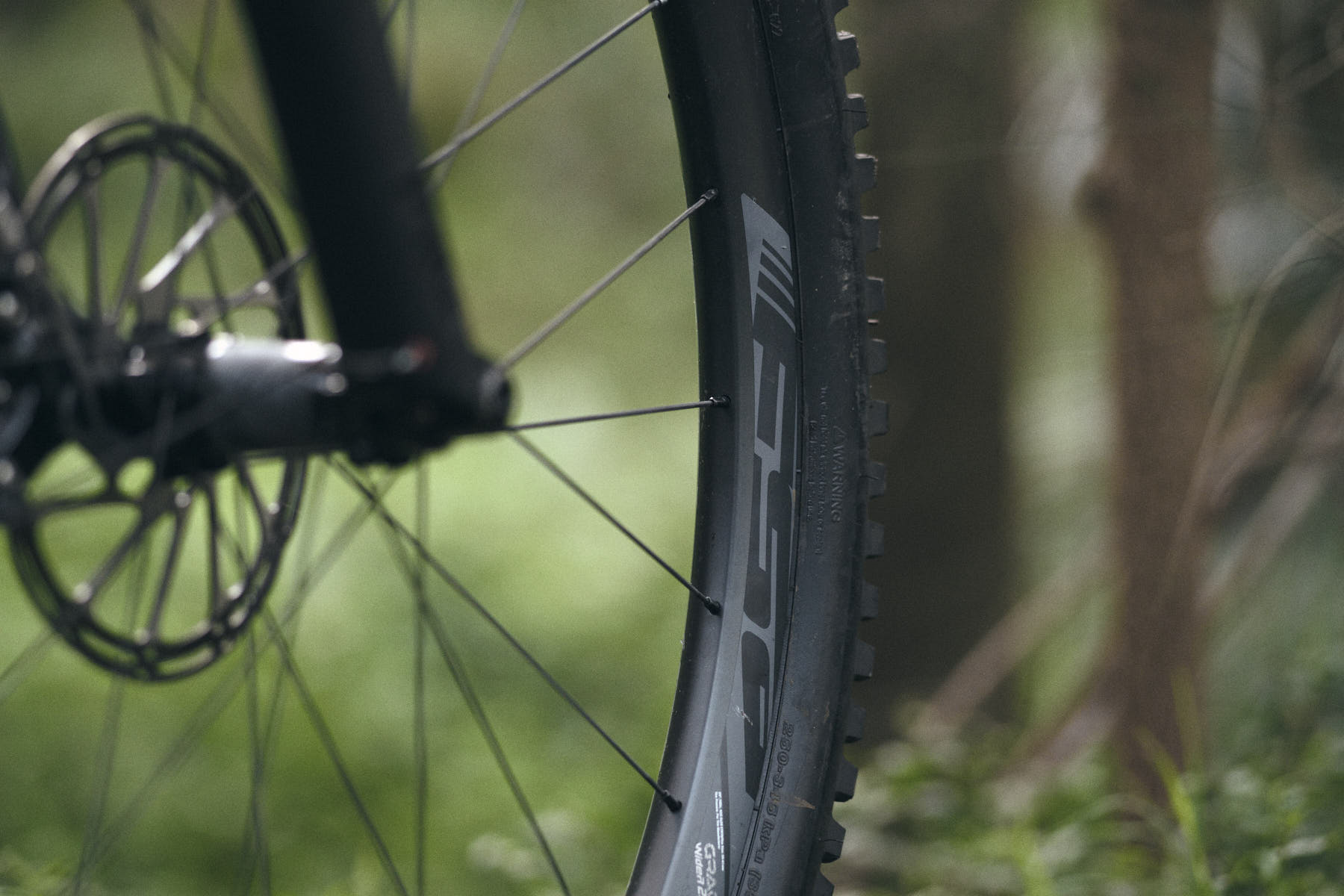
Great wheels and rubber.
FSA provides the 1700g-ish Gradient carbon-rimmed wheelset, and it was the first time we’ve ridden these hoops. The deep profiled rims look imposing and purposeful, and while our test bike came to us with plenty of miles on the clock, the wheels were true and tight. Despite having just 24 spokes at both ends, they’re certainly a stiff set of wheels and the 29mm inner width gave an ideal profile to the 2.4″ Maxxis DHR front tyre. While the DHR is really intended as a rear tyre, its blocky tread works well up front too, especially in terms of straight line braking. Out back, a 2.35″ Maxxis Forekaster is specced to keep things rolling quickly. It’s a great dry conditions tyre, but softer soils might call for something with more bite.

Hard to go wrong with a Pike and Eagle.
SRAM gets the nod for most of the components, and the flawless X0 Eagle drivetrain clips through the gears beautifully like we’ve come to expect. While the Pike RTC3 on our test bike was probably due for a service and felt a little dry, getting the fork setup was zero-fuss, with the recommended pressures netting the feel we wanted. Interestingly, the fork gets the Maxle Stealth axle which requires a 6mm Allen key, while the rear axle has a big lever sticking out of it. We’re never sure why brands do this… why not go for a proper bolt-up front and rear? 148mm rear hubs mean bikes are wide enough out back already without a lever poking out to catch on rocks. Rant over.
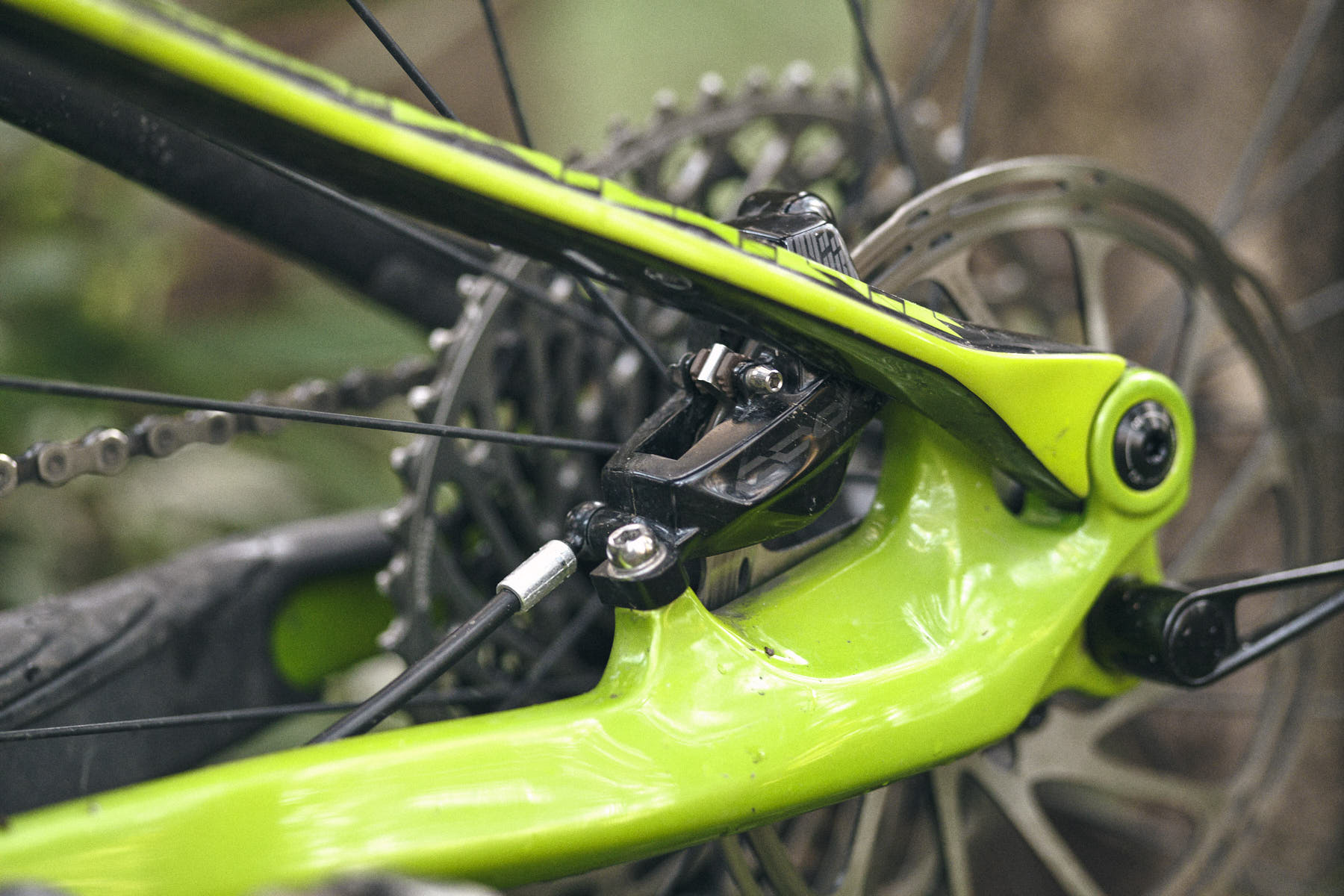
Big brakes are never a negative.
Downhill brakes on a lightweight trail bike? Sure the SRAM Code RSC brakes might be overkill for most riding, but when it comes to stopping power, you really can’t have too much. And if you do take the bike to some big Alpine riding, the power and heat dissipation of these brakes will be a huge plus.

And it climbs too.
With light wheels and an overall weight not much over 12.5kg, you’d expect the Merida to scamper up hills, and it does. Climbing out of the saddle was a highlight, the bike relishes a technical ascent where you can haul on the bars and use lots of body language to tackle tricky ledges. While the RockShox Deluxe RT3 rear shock has both a lockout and pedal-platform setting, we weren’t interested in using either of these modes finding the One Twenty to be stable and efficient enough with the shock in its open mode.
As with other bikes that have a slack seat tube angle, you need to make sure you don’t end up too far behind the bottom bracket when the post is at full extension, so pay attention to your saddle position.

A bit rattly to begin with.
Our test bike has some nasty cable rattle to begin with. The internal gear, brake and dropper lines are routed straight through the down tube without any sleeves or foam to contain them which leaves them prone to clacking away inside the frame. We remedied it by pulling out the fork and sliding some lightweight foam into the down tube. Hey, presto! The bike was silenced.

Right on the money.
We’d be happy to have this bike as our go-to machine – it’d be happy tackling 90% of the riding we do. At $6999, this particular model will be a stretch for most folk, but there are plenty of other options. The $3899 One Twenty 800 looks like it’d be a real winner in particular; the alloy frame shares the same geometry and suspension platform as our test bike, and other vital items (like wide rims, good tyres and a confident cockpit) are all in attendance too, along with the decent RockShox Revelation fork as well.
This hard-riding short-travel segment is the sweet spot for so many people, and Merida has done a superb job with this bike. Nice one, Merida, now go get some branding tips from Yeti or Specialized so more people are excited by your excellent bikes!
